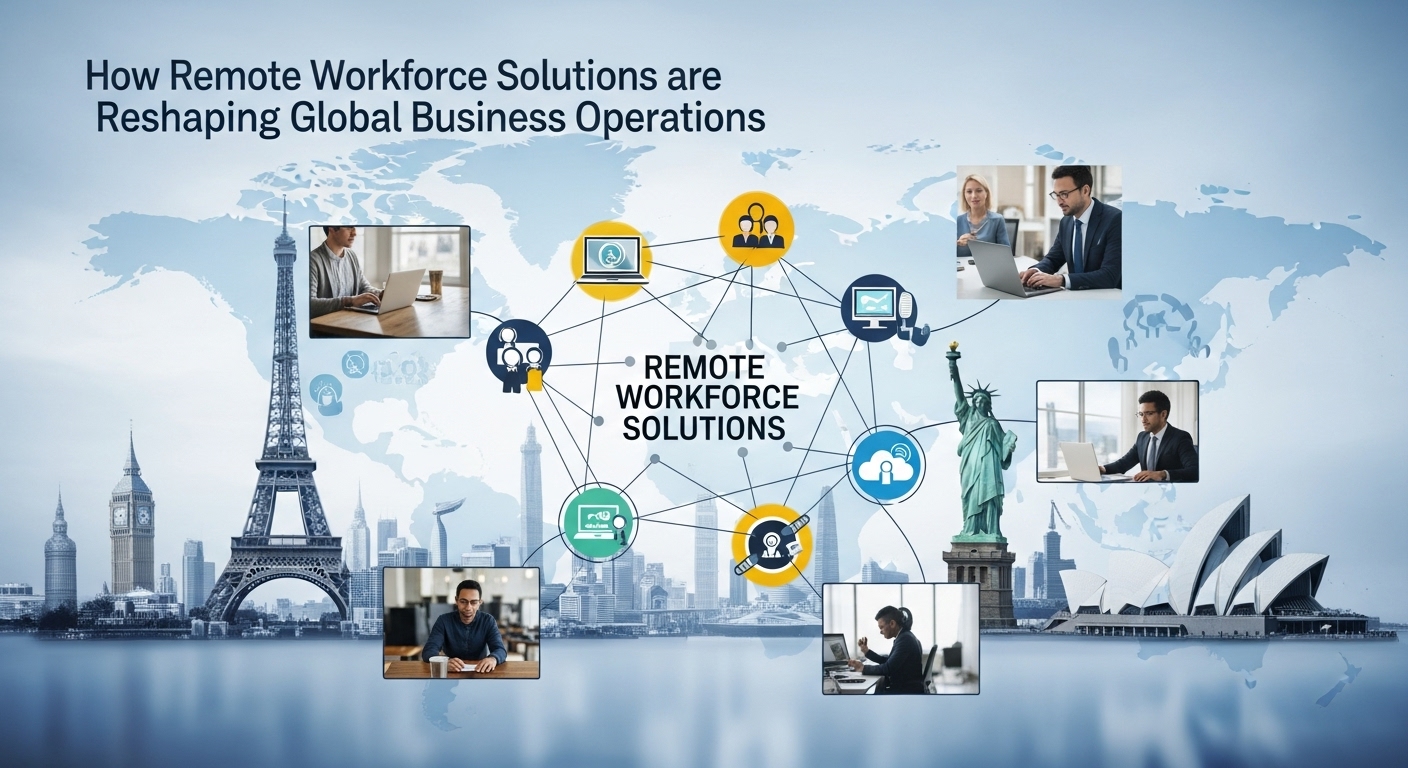How Remote Workforce Solutions are Reshaping Global Business Operations

Global businesses constantly evolve, driven by rapid technological advancements and shifting workforce dynamics. One less visible yet powerful force behind this transformation is the rise of remote workforce solutions. These innovative models defy traditional geographic and administrative boundaries, enabling companies to deploy talent worldwide quickly and easily. At the heart of this shift lies the crucial function of managing international employment complexities, often facilitated by employer of record payroll services — ensuring compliance and seamless payroll across different jurisdictions.
The past decade has seen a surge in companies tapping into global talent pools, motivated by the need for agility, cost efficiency, and diverse expertise. However, alongside these opportunities come challenges: navigating complex labor laws, tax implications, and varying compliance standards. Traditionally, setting up subsidiaries or local entities was the primary route for global expansion, often entailing high costs and lengthy processes. Enter remote workforce solutions combined with employer of record models, which sidestep these barriers by acting as the official employer on behalf of the hiring company.
This new paradigm empowers businesses to onboard, pay, and manage employees around the globe without establishing physical presence in every country. The advantages extend well beyond operational convenience. It democratizes access to talent, accelerates time-to
market, and enhances the employee experience by offering local compliance and benefits — all while mitigating risk. This is a strategic imperative for many organizations in an increasingly distributed workplace ecosystem.
Despite the clear advantages, the rapid growth of such models is driving new conversations on how global employment frameworks must evolve. Remote workforce solutions redefine where people work and how organizations think about their workforce strategy entirely. No longer limited by borders, companies can adopt more flexible and project-driven approaches to talent allocation, assembling high-performing global teams tailored to specific needs.
The employer of record payroll services embedded within these solutions play a pivotal role, bestowing legitimacy and operational stability. They provide expert management of diverse regulatory requirements spanning payroll taxes, labor rights, benefits administration, and local employment mandates. This infrastructure enables companies to focus on core business functions and talent development rather than administrative burdens.
Moreover, as global regulations continue to shift and digital nomadism gains traction, the demand for adaptive workforce solutions grows. Organizations are not just reacting to change but proactively designing future-ready talent ecosystems. This evolution extends to how companies onboard and engage remote workers, emphasizing digital tools for collaboration and cultural integration, alongside compliance.
One significant impact of these solutions is on small and medium-sized enterprises (SMEs), which historically faced greater obstacles to international expansion due to limited resources and expertise. Now, SMEs can quickly leverage global opportunities without the risks previously associated with cross-border hiring.
The discussion also touches on socio-economic implications. Remote workforce solutions enable talent to be accessed in emerging markets and underrepresented regions, fostering inclusion and diversity on a broader scale. This, in turn, enriches innovation and drives sustainable growth—highlighting workforce strategy as a core component of global competitiveness.
However, challenges remain. Ensuring fair treatment across varying legal landscapes, safeguarding data privacy, and maintaining organizational culture within dispersed teams require continued focus and innovation. Nonetheless, the trajectory is clear: flexible, compliant, and technologically empowered workforce models are becoming the norm.
In summary, the transformation driven by remote workforce solutions and supported by employer of record payroll services marks a significant shift in global business operations. It goes beyond the logistical convenience of hiring abroad and taps into a more profound reinvention of how companies conceptualize workforce mobility, compliance, and strategic talent management. As more organizations harness these models, the future of work promises to be borderless, dynamic, and inclusive—reshaping global commerce one hire at a time.



